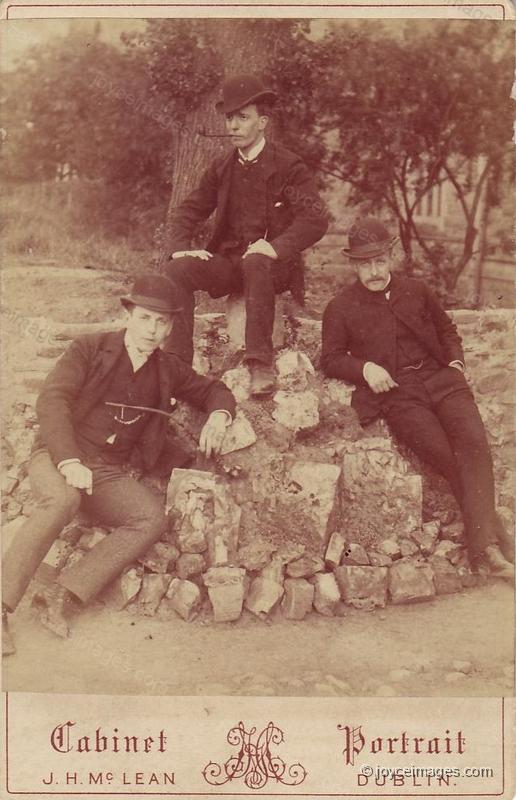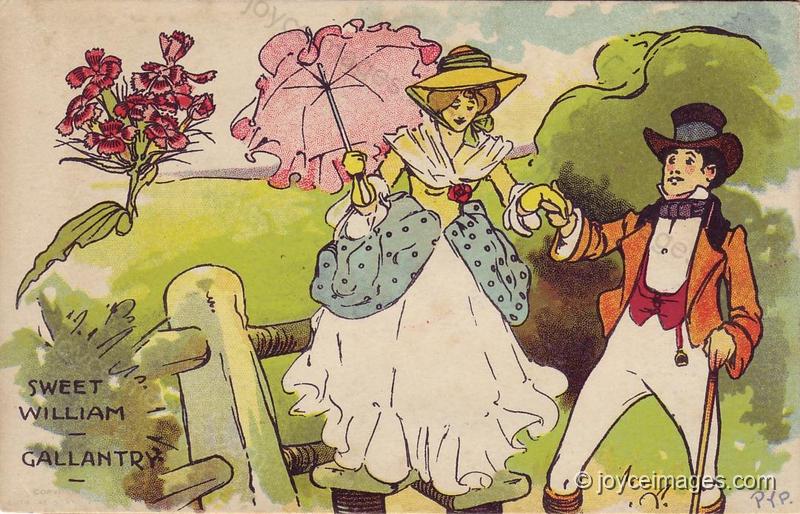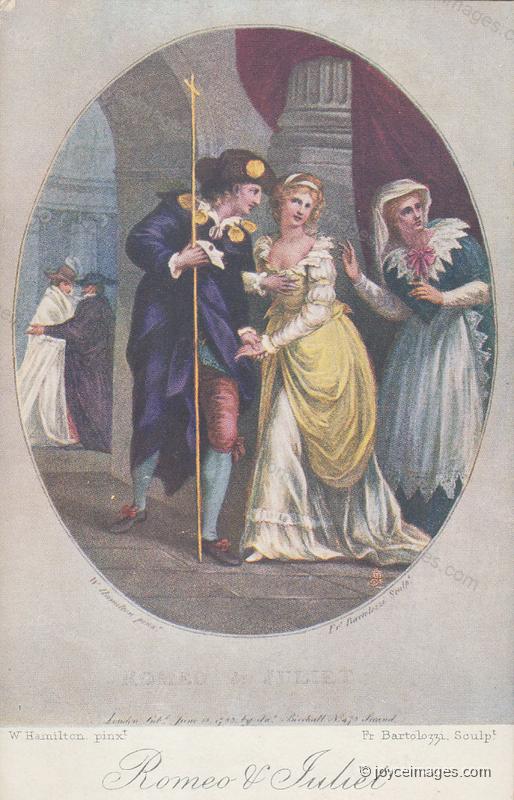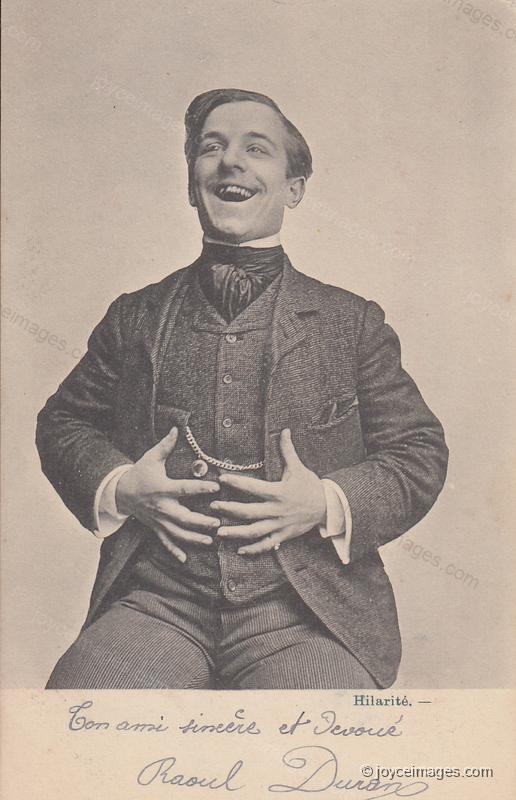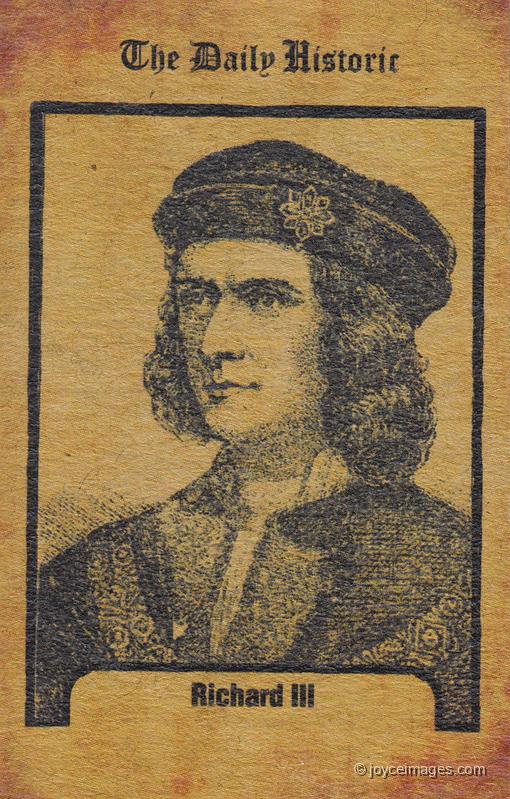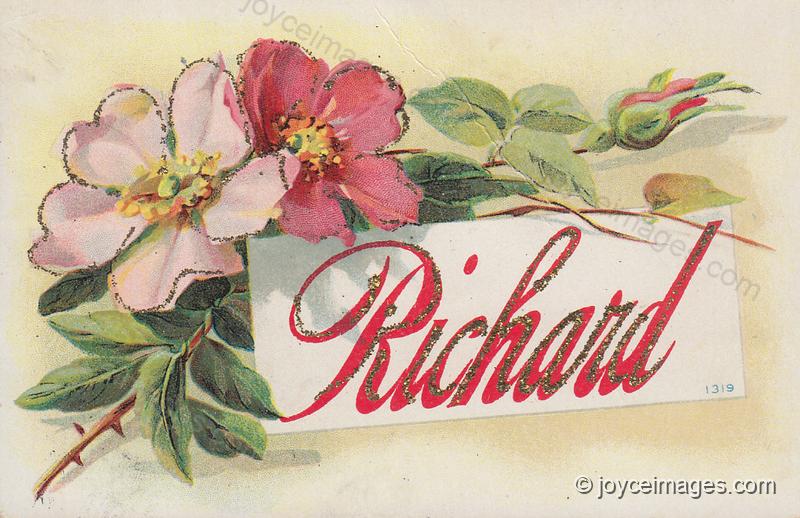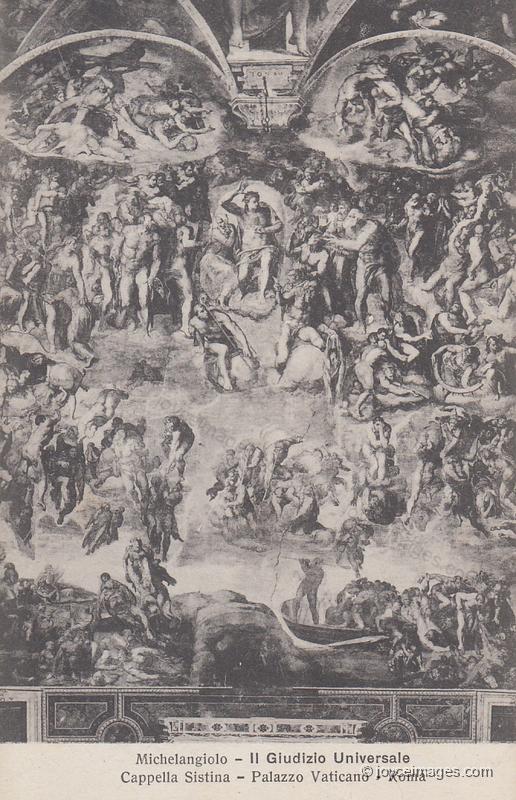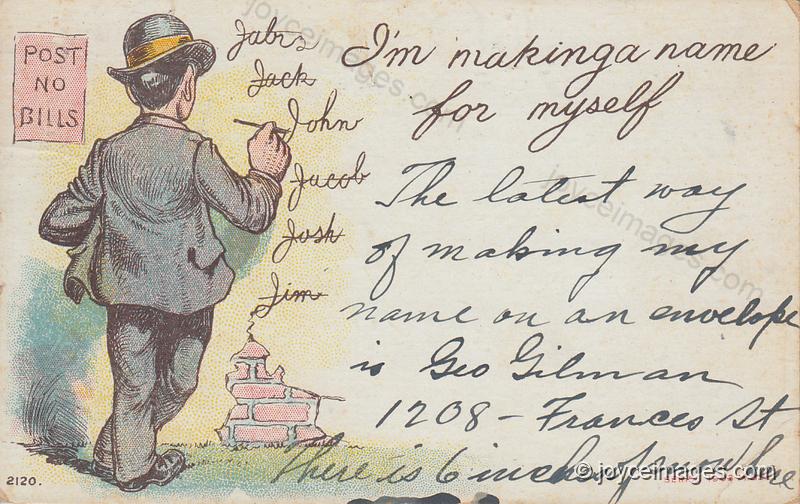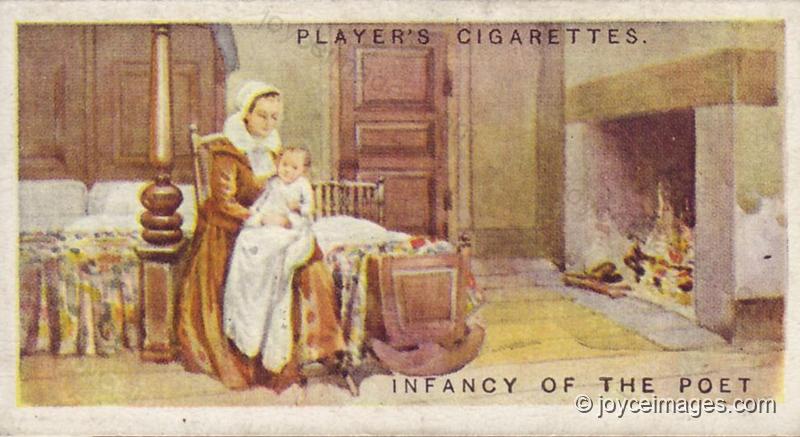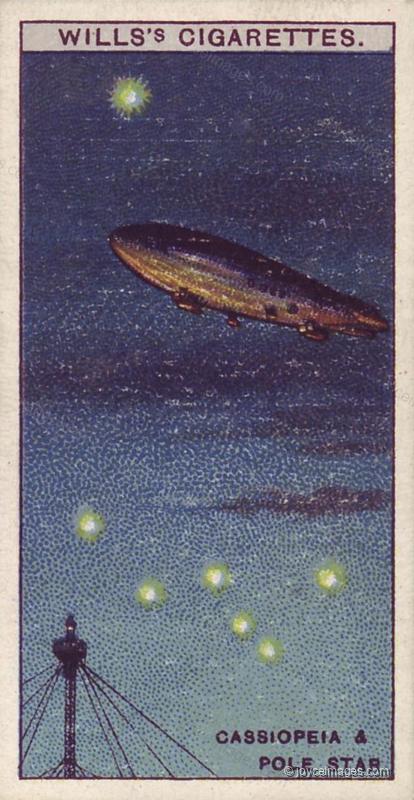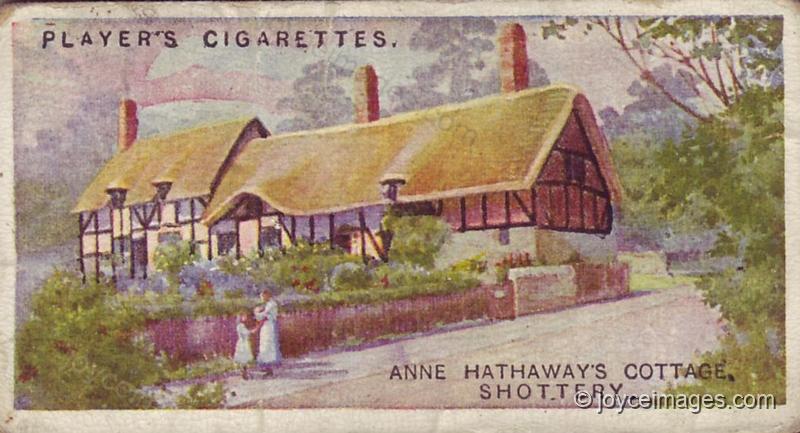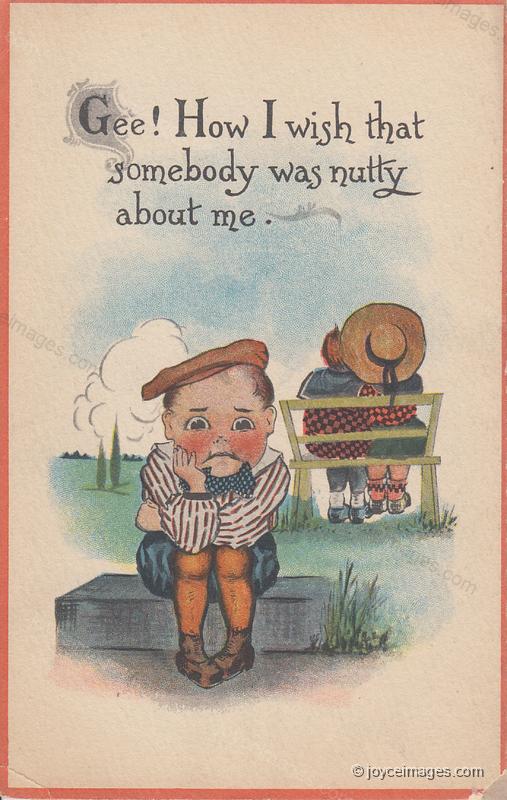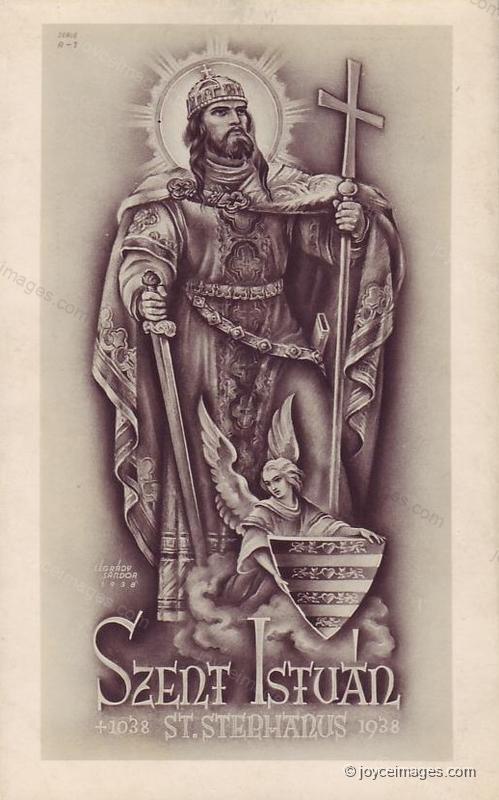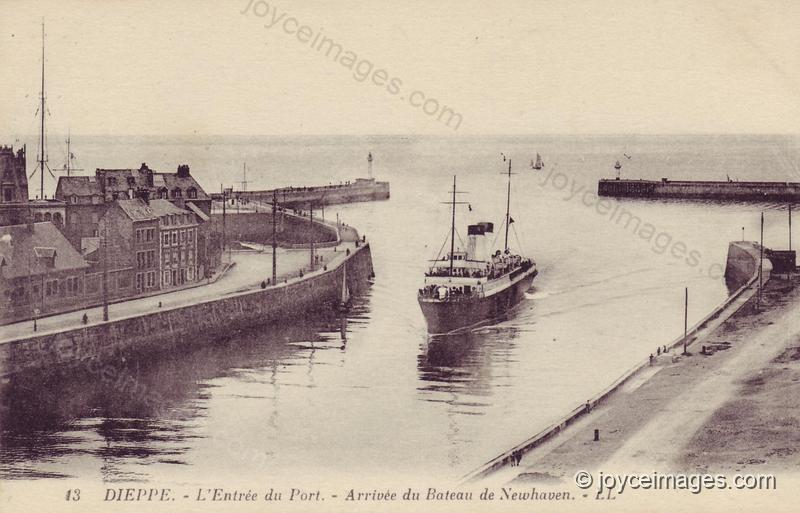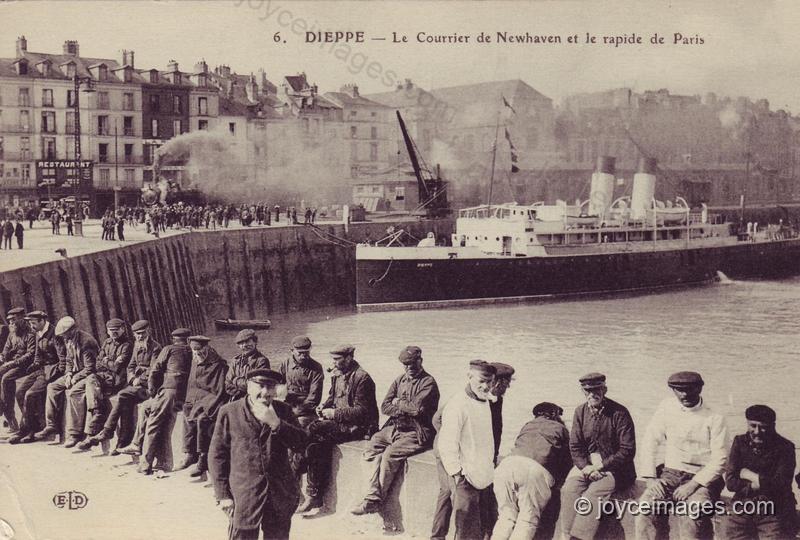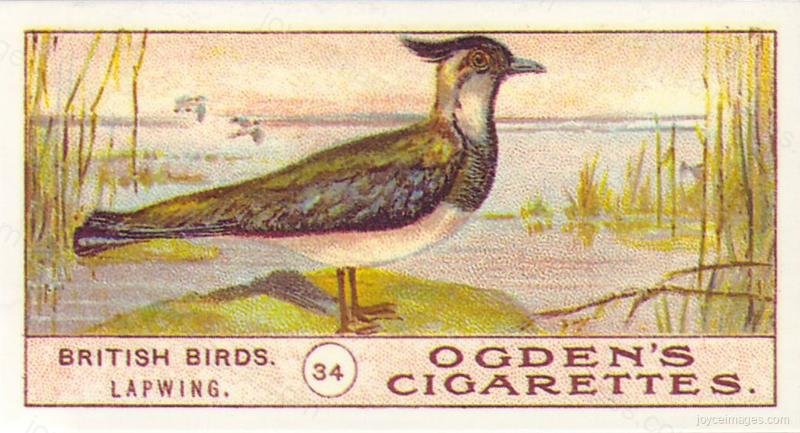"They list. Three. They.
I you he they.
Come, mess.
STEPHEN
He had three brothers, Gilbert, Edmund, Richard. Gilbert in his old age told some cavaliers he got a pass for nowt from Maister Gatherer one time mass he did and he seen his brud Maister Wull the playwriter up in Lunnon in a wrastling play wud a man on's back. The playhouse sausage filled Gilbert's soul." (U9.890)
I you he they.
Come, mess.
STEPHEN
He had three brothers, Gilbert, Edmund, Richard. Gilbert in his old age told some cavaliers he got a pass for nowt from Maister Gatherer one time mass he did and he seen his brud Maister Wull the playwriter up in Lunnon in a wrastling play wud a man on's back. The playhouse sausage filled Gilbert's soul." (U9.890)
"MAGEEGLINJOHN
Names! What's in a name?
BEST
That is my name, Richard, don't you know. I hope you are going to say a good word for Richard, don't you know, for my sake." (U9.900)
Names! What's in a name?
BEST
That is my name, Richard, don't you know. I hope you are going to say a good word for Richard, don't you know, for my sake." (U9.900)
"(laughter)
BUCKMULLIGAN
(piano, diminuendo)
Then outspoke medical Dick
To his comrade medical Davy ..." (U9.905)
BUCKMULLIGAN
(piano, diminuendo)
Then outspoke medical Dick
To his comrade medical Davy ..." (U9.905)
"STEPHEN
In his trinity of black Wills, the villain shakebags, Iago, Richard Crookback, Edmund in King Lear, two bear the wicked uncles' names. Nay, that last play was written or being written while his brother Edmund lay dying in Southwark." (U9.910)
In his trinity of black Wills, the villain shakebags, Iago, Richard Crookback, Edmund in King Lear, two bear the wicked uncles' names. Nay, that last play was written or being written while his brother Edmund lay dying in Southwark." (U9.910)
"BEST
I hope Edmund is going to catch it. I don't want Richard, my name.....
(laughter)
QUAKERLYSTER
(a tempo) But he that filches from me my good name..." (U9.915)
I hope Edmund is going to catch it. I don't want Richard, my name.....
(laughter)
QUAKERLYSTER
(a tempo) But he that filches from me my good name..." (U9.915)
"STEPHEN
(stringendo) He has hidden his own name, a fair name, William, in the plays, a super here, a clown there, as a painter of old Italy set his face in a dark corner of his canvas. He has revealed it in the sonnets where there is Will in overplus. Like John o'Gaunt his name is dear to him, as dear as the coat and crest he toadied for, on a bend sable a spear or steeled argent, honorificabilitudinitatibus, dearer than his glory of greatest shakescene in the country." (U9.920)
(stringendo) He has hidden his own name, a fair name, William, in the plays, a super here, a clown there, as a painter of old Italy set his face in a dark corner of his canvas. He has revealed it in the sonnets where there is Will in overplus. Like John o'Gaunt his name is dear to him, as dear as the coat and crest he toadied for, on a bend sable a spear or steeled argent, honorificabilitudinitatibus, dearer than his glory of greatest shakescene in the country." (U9.920)
"What's in a name? That is what we ask ourselves in childhood when we write the name that we are told is ours." (U9.927)
" A star, a daystar, a firedrake, rose at his birth. It shone by day in the heavens alone, brighter than Venus in the night," (U9.928)
"and by night it shone over delta in Cassiopeia, the recumbent constellation which is the signature of his initial among the stars." (U9.930)
"His eyes watched it, lowlying on the horizon, eastward of the bear, as he walked by the slumberous summer fields at midnight, returning from Shottery and from her arms.
Both satisfied. I too.
Don't tell them he was nine years old when it was quenched.
And from her arms." (U9.932)
Both satisfied. I too.
Don't tell them he was nine years old when it was quenched.
And from her arms." (U9.932)
"Wait to be wooed and won. Ay, meacock. Who will woo you?
Read the skies. Autontimorumenos. Bous Stephanoumenos. Where's your configuration? Stephen, Stephen, cut the bread even. S. D: sua donna.
Già: di lui. Gelindo risolve di non amare S. D.
— What is that, Mr Dedalus? the quaker librarian asked. Was it a celestial phenomenon?
— A star by night, Stephen said. A pillar of the cloud by day." (U9.938)
Read the skies. Autontimorumenos. Bous Stephanoumenos. Where's your configuration? Stephen, Stephen, cut the bread even. S. D: sua donna.
Già: di lui. Gelindo risolve di non amare S. D.
— What is that, Mr Dedalus? the quaker librarian asked. Was it a celestial phenomenon?
— A star by night, Stephen said. A pillar of the cloud by day." (U9.938)
"What more's to speak?
Stephen looked on his hat, his stick, his boots.
Stephanos, my crown. My sword. His boots are spoiling the shape of my feet. Buy a pair. Holes in my socks. Handkerchief too.
- You make good use of the name, John Eglinton allowed. Your own name is strange enough. I suppose it explains your fantastical humour.
Me, Magee and Mulligan." (U9.945)
Stephen looked on his hat, his stick, his boots.
Stephanos, my crown. My sword. His boots are spoiling the shape of my feet. Buy a pair. Holes in my socks. Handkerchief too.
- You make good use of the name, John Eglinton allowed. Your own name is strange enough. I suppose it explains your fantastical humour.
Me, Magee and Mulligan." (U9.945)
"Fabulous artificer, the hawklike man. You flew. Whereto? Newhaven-Dieppe, steerage passenger." (U9.952)
